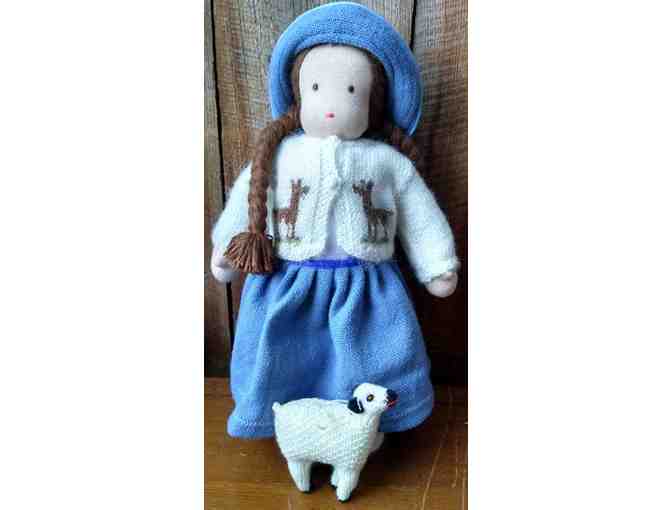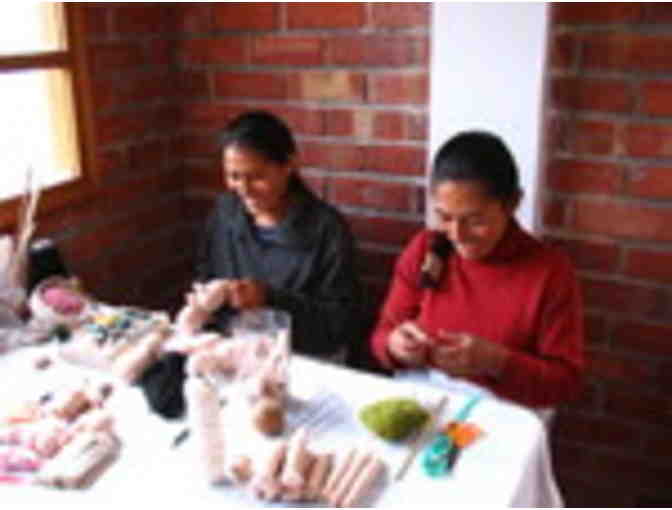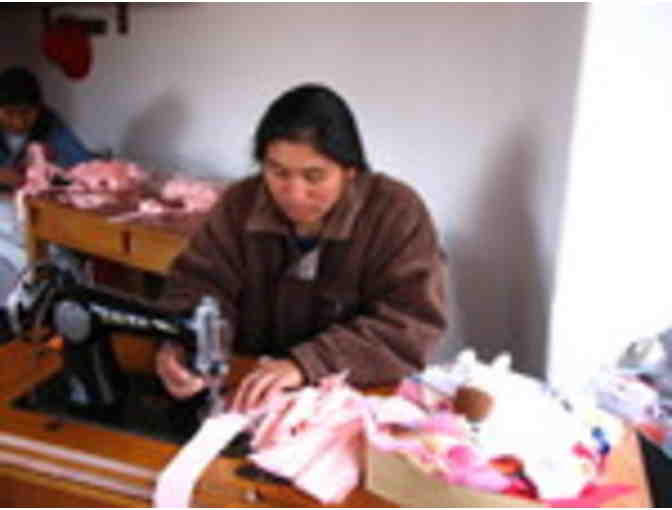Waldorf Style Girl Doll, Brown Hair with Alpaca Sweater

Item Number: 219
Time Left: CLOSED


Description
What makes a Waldorf doll especially unique is its neutral facial expression, which allows children to imagine or project any emotion, from excitement to sorrow. This makes them particularly good companions for young children's games of make-believe. The dolls' bodies are fully joined for posing and sitting, and their hair is hand-stitched. You can even undo their braids and style their hair in a ponytail if you like.
These beautiful Waldorf dolls are made by Quechua women who participate in a social outreach cooperative in Peru. The women and their families do all the spinning, dyeing, knitting, sewing, weaving and designing themselves.
See the entire doll-making process here: http://qewar.com/doll-making/
Special Instructions
From JoAnne, Q’ewar Doll Distributor in Vermont, USA
Dear Friends, When you buy one of our Waldorf Inspired dolls you are giving your support to the Q’ewar Project, a social and economic initiative working with the indigenous women living in a Quechua speaking village community in southern Peru. The women of the Q’ewar Project live in extreme poverty, and for most, this is the first chance they have had to learn skills to earn money in a humane and respectful working environment. Although the Project is young, the original intention – to provide an opportunity for these women to improve the difficult conditions of their lives – is bearing fruit, little by little.
About Q’ewar: It takes a whole village to create these beautiful, museum quality child-friendly dress up Q’ewar Waldorf inspired dolls! Homespun fibers and fabrics reflect a wide variety of traditional clothing and traditional skills of shepherding alpaca and sheep, carding, spinning, dyeing, weaving, knitting and embroidery. The combined qualities of imagination, color, and therapeutic work give rise to the healing environment in this women’s workshop located in the rural village of Andahuaylillas, Peru.